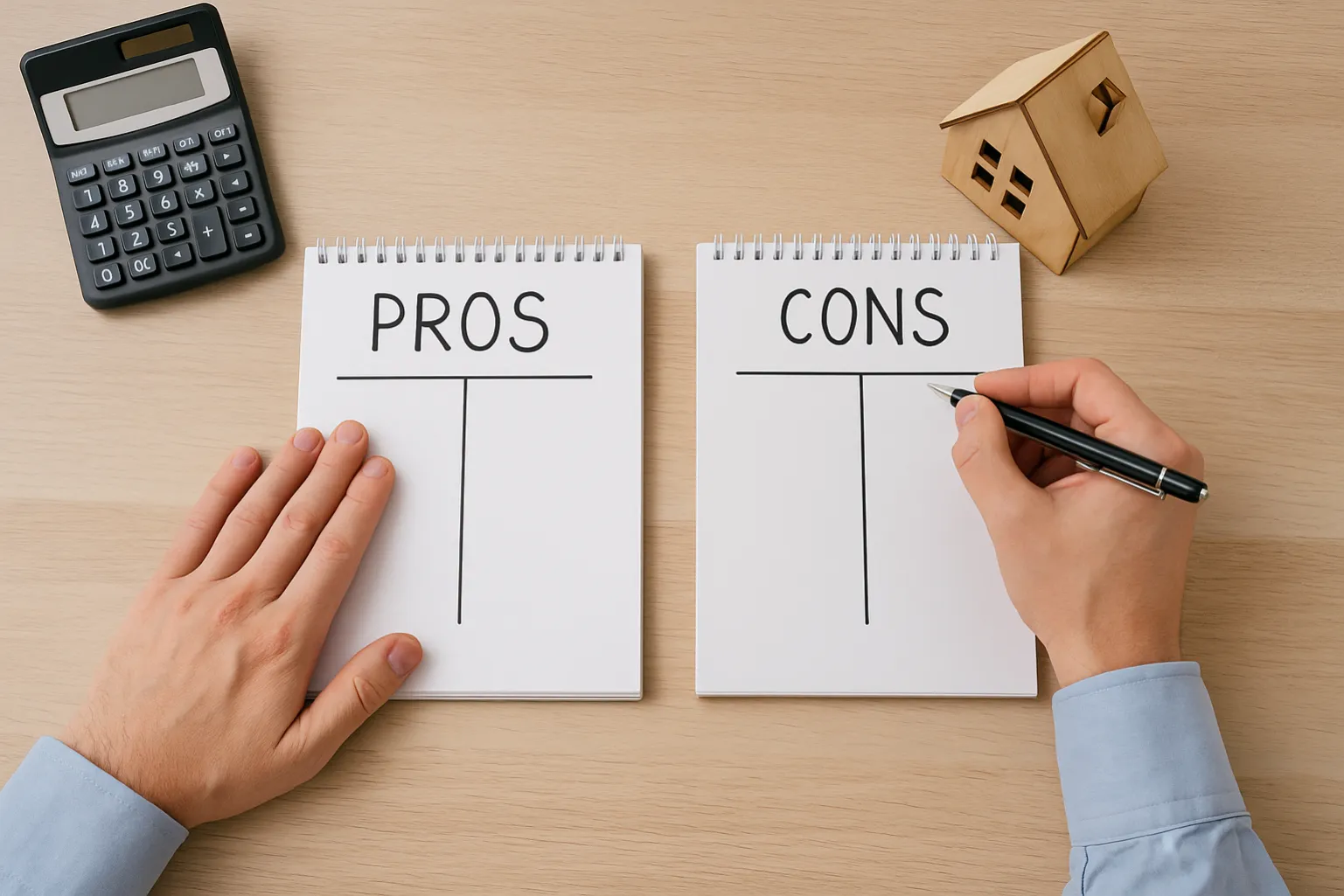Explore whether it’s possible (or smart) to include your existing debts in a new mortgage. Learn what options are available to first-time buyers vs current homeowners, what lenders consider, and whether remortgaging for debt makes sense for you.

Jul 7, 2025

Debt consolidation is when you roll multiple debts into one single repayment, usually to reduce your monthly outgoings or pay less interest overall. One way to do that is by using your mortgage.
But here's the big question: can you consolidate debt into a brand new mortgage, especially if you're buying your first home or switching lenders?
Short answer: yes, it’s possible but not for everyone. Let’s break down when and how this might work.
Yes, if you already own a home and have built up equity, you might be able to take out a larger mortgage to pay off things like:
This is often done through remortgaging or taking a second charge loan. But if you’re a first-time buyer, it’s a bit trickier.
According to the Bank of England, UK households now hold over £210 billion in consumer credit, with credit card balances at their highest level since 2019. As a result, more homeowners are exploring remortgage options to consolidate high-interest debt into a single, lower-rate payment.
Here’s where things get specific.
If you’re buying a home for the first time and trying to use the mortgage to pay off other debts at the same time – lenders will usually say no. They want the mortgage to be solely for the home purchase.
That said, your existing debts do matter during the mortgage process.
Client example:
One of our clients, Sarah from Chelmsford, had £7,000 across two credit cards when she came to us for her first mortgage. Instead of trying to include them in the mortgage, we helped her clear them using a short-term loan from family. Her affordability score shot up, and she got a better rate from the lender.
If you already own a home, you’ve got a few more options. Here’s how debt consolidation with a mortgage can work in practice:
You take out a new mortgage for more than you currently owe, and use the extra cash to pay off other debts.
✅ One monthly payment
✅ Often lower interest than loans or cards
⚠️ But spreads debt over a longer period – may cost more in total interest
⚠️ Turns unsecured debt into secured (your home is at risk if you fall behind)
This is a separate loan secured against your home, leaving your existing mortgage untouched.
✅ Useful if your current mortgage has early repayment charges
✅ Available even if your credit isn’t perfect
⚠️ Adds another monthly payment
⚠️ Still puts your home at risk
Before offering a mortgage to consolidate debt, lenders will look at:
Some lenders don’t allow you to consolidate business or tax debts, for example. And many cap the maximum LTV at 80–85% if you're using equity to consolidate.

From my experience, debt consolidation through your mortgage only works when it’s done for the right reasons and with a clear plan.
If you're just trying to "wipe the slate clean" without addressing spending habits, it could lead to a worse financial situation later.
But if you’ve got high-interest debt, solid equity, and want to streamline your finances it can be a smart option.
No, lenders don’t allow new mortgages to include extra borrowing for debt consolidation. You’ll need to deal with debts separately before applying.
It depends. Mortgages usually offer lower rates, but the debt is repaid over a longer term and is secured. Personal loans can be better if you want to repay over a shorter period.
Yes, it can improve your score long-term if you repay debts consistently. But applying for new credit or increasing your borrowing temporarily drops your score.
Sometimes it’s not your mortgage at all. Balance transfer cards, short-term personal loans, or even budgeting to repay manually can be cheaper.

While mortgage rates have risen slightly since 2023, they’re still typically far below the average interest on personal loans and credit cards, which can be anywhere from 10% to 25% APR.
Whether you’re looking to remortgage to consolidate debts, or want to figure out how your current loans might affect your mortgage application we’re here to help.
At Mortgage Brokers Near Me, we’ve helped hundreds of UK homeowners and buyers work through these exact decisions. We’ll walk you through your options and show you what’s possible based on your unique situation.
Get personalised advice or a free quote today – no obligation, just honest guidance.

Buying a home is stressful enough. The right broker makes it simpler, faster, and cheaper. The wrong one wastes time and money. Here is a clear, eight-section guide to help you choose well, based on what the top guides do right, plus the bits they miss.
Read Article
The best time to get life insurance is as early as possible, when premiums are lower and health checks are easier to pass. Major life events like buying a home, marriage, or having children make cover even more important. Life insurance ensures your mortgage and family are financially protected if something happens to you.
Read Article
Explore whether it’s possible (or smart) to include your existing debts in a new mortgage. Learn what options are available to first-time buyers vs current homeowners, what lenders consider, and whether remortgaging for debt makes sense for you.
Read ArticleIf you’re buying, moving, or remortgaging, speak with a MBNM adviser and get clear guidance on what’s realistically available to you, before you commit to anything.

